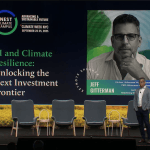Protecting Human Rights through the Responsible Glove Alliance: A Collaborative Effort

In December, World Human Rights Month commemorates the Universal Declaration of Human Rights, a cornerstone document affirming fundamental rights for all. Cardinal Health firmly believes in upholding these rights throughout its supply chain. One crucial initiative in this endeavor is the Responsible Glove Alliance (RGA).
Launched in March 2022 by Cardinal Health and six other companies, the RGA tackles worker rights risks within the rubber glove industry. This vital sector relies heavily on migrant workers, who can be vulnerable to forced labor during recruitment and employment. The RGA focuses on improving conditions for such workers, particularly in Malaysia, the world’s leading rubber glove producer.
Recognizing the limitations of individual action, the RGA harnesses the collective power of glove manufacturers and buyers. Its members commit to ongoing due diligence practices, following OECD guidelines and U.N. Guiding Principles on Business and Human Rights to identify and mitigate forced labor risks.
Lori Crosley, Cardinal Health’s RGA representative, highlighted the collaborative effort’s genesis: “We partnered with peers and sought guidance from LRQA and the RBA, leading to the RGA’s design and launch.” Membership is open to all rubber glove entities, providing them with tools and resources for assessing risks, promoting responsible recruitment, engaging workers, and delivering appropriate remediation.
The RGA’s first in-person meeting in Kuala Lumpur this September exemplified its growing influence. Attended by over 200 buyers, manufacturers, and government officials, including the U.S. Customs and Border Protection’s Forced Labor Division Director and Malaysia’s Minister of Human Resources, the event fostered dialogue and exchange of knowledge.
Related Article: 2nd Asia Pacific Environmental Human Rights Defenders Forum
Malaysia’s Deputy Minister of Human Resources commended the RGA for its proactive approach, and the CBP Director expressed readiness for collaboration towards shared goals. While still in its early stages, the RGA’s growing membership and impactful initiatives demonstrate its promise in making a tangible difference for worker rights in the rubber glove industry.
This rewritten version maintains the informative content of the original text but shifts the focus from Megan Maltenfort’s individual perspective to a third-person narrative, highlighting the collaborative nature of the RGA and its positive impact on human rights.








